Psychosocial services
Helping patients to help themselves
Our patients have to contend with a range of different problems, and also suffer from the fact that HIV/Aids is a taboo disease. By providing psychosocial services specifically aimed at children, adolescents and adults living with HIV, we want to empower them to deal with these issues.
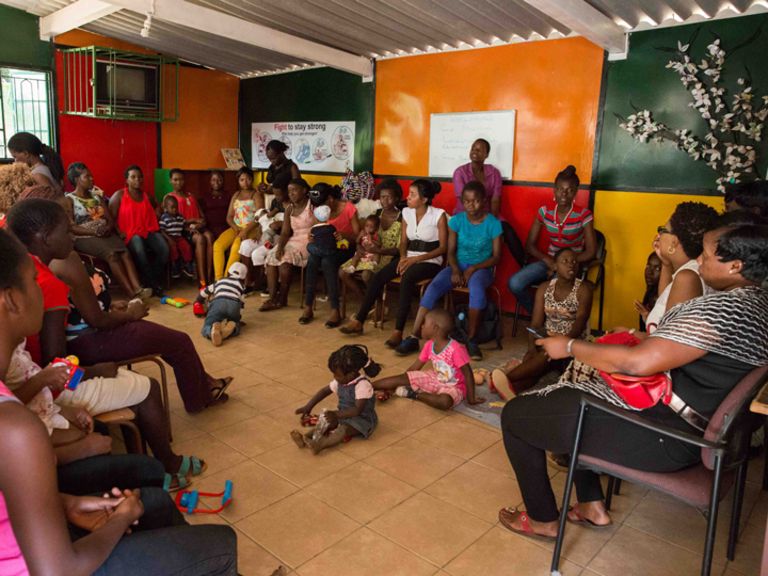
Workshops and therapy
With individual support, group therapy and moderated self-help groups, we help our patients to see prospects for their future once again. These services are aimed in particular at target groups such as adolescents, young mothers, and patients at risk of treatment failure.
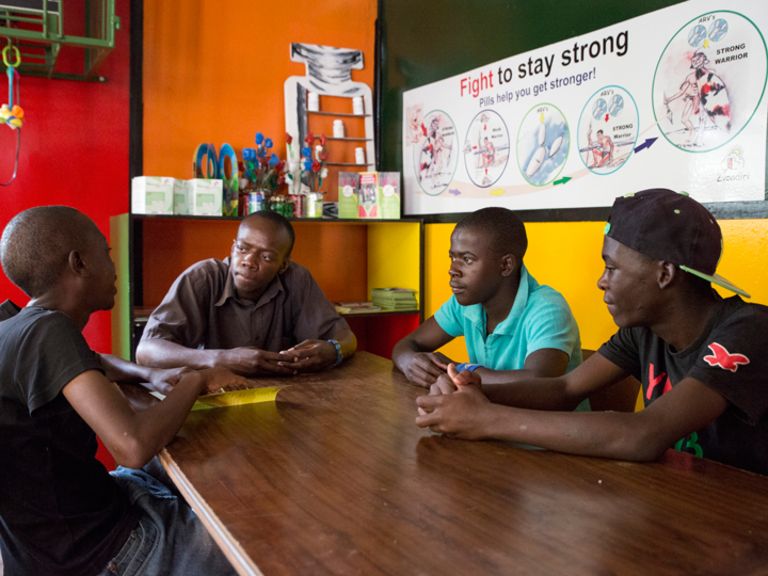
Adolescent Corner
Our Adolescent Corner gives young patients a place where they can meet and get advice from peer counsellors. Issues such as stigmatization and adherence problems are commonplace, and hearing others relate similar stories can help young people to cope with their status and find a way to deal with difficult life situations.
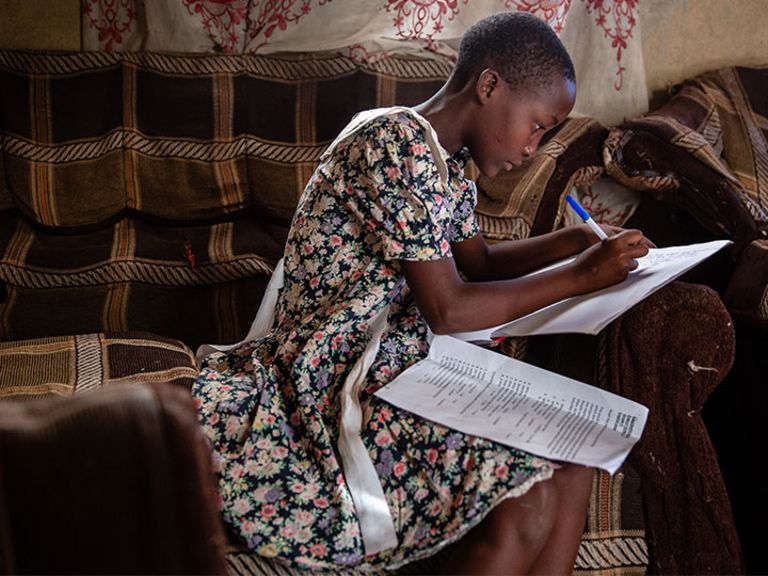
Schooling for all
It is especially important for us to ensure that all of the children treated at Newlands Clinic can go to school. After all, education is essential for a better life. We cover the school fees for orphans and particularly poor families.
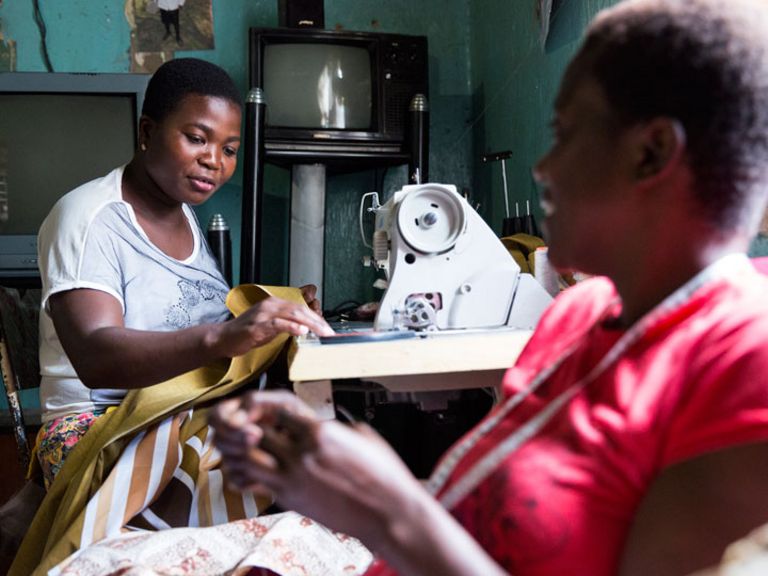
Vocational skills training
With nationwide unemployment in excess of 90%, young HIV-positive people have hardly any chance of finding a job. With our vocational skills training programme we give patients aged between 18 and 23 the opportunity to train to become hairdressers, tailors or bakers, and to set up their own business.
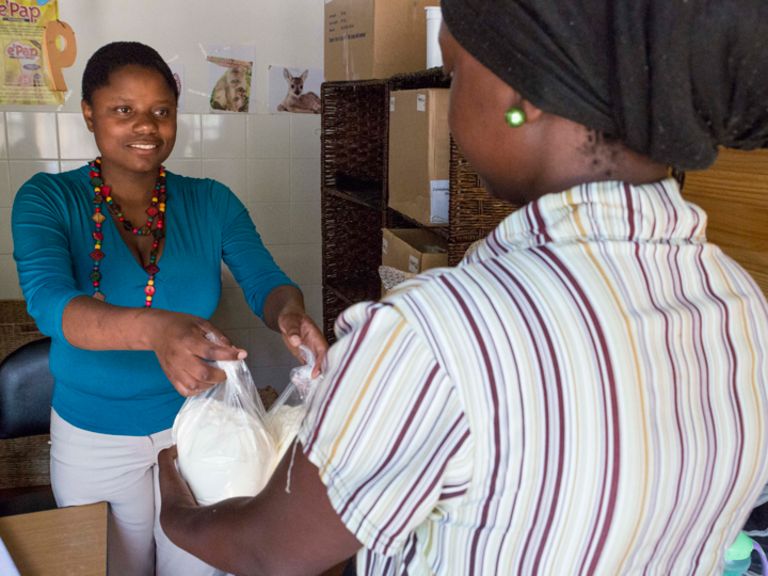
The fight against hunger
An exceptionally high number of our patients are suffering from hunger. Thanks to the emergency programme set up in 2016 we are able to provide support to up to hundreds of families per year. Furthermore, we are also helping people who have land available to them to feed themselves with efficient maize farming. By handing out a special type of porridge, we ensure that children can develop properly and that patients who are ill can recover quickly.
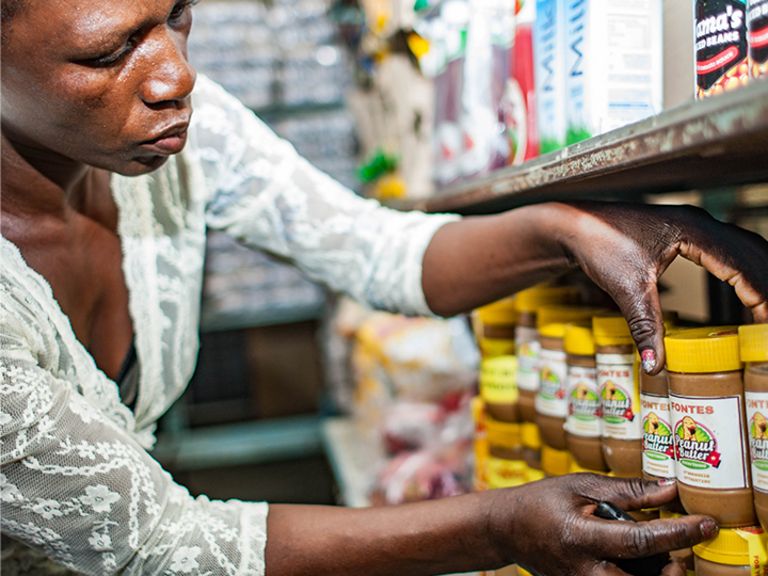
Project to empower women
Most of our female patients suffering from HIV come from particularly challenging circumstances. They are responsible for their families, are unemployed, destitute, and some are survivors of domestic violence. These women are setting up their small-scale businesses, generating an income, and gaining independence.
